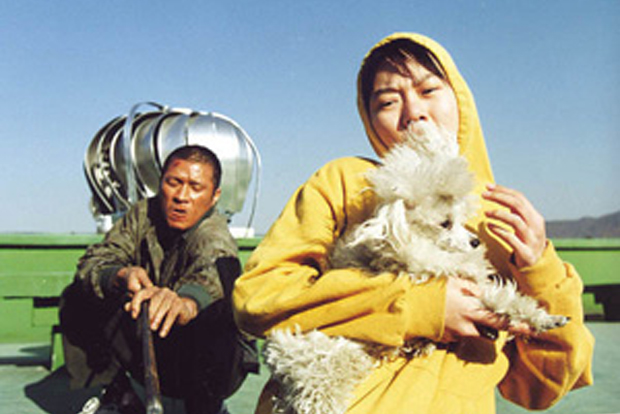
Discover how Bong Joon-ho’s debut film Barking Dogs Never Bite shows the same class struggle themes that made Parasite famous.
⚠️ SPOILER ALERT: This article contains plot details for Barking Dogs Never Bite and Parasite ⚠️
Introduction
Most people know Bong Joon-ho for his Oscar-winning film Parasite. But his earlier movies also tackle important social issues. With his new sci-fi film Mickey 17 coming in 2025, now is a great time to look back at his past work.
His first film, Barking Dogs Never Bite (2000), uses dark humor to criticize class differences and human frustration. By looking at this movie, we can see how many themes from Parasite were already present in Bong’s early work.
Class Struggle and Powerlessness
In Barking Dogs Never Bite, the main character Yun-ju (Lee Sung-jae) is a struggling teacher who can’t get a permanent job without paying a bribe he can’t afford. His frustration leads him to target a barking dog in his apartment building.
This is similar to Parasite, where the Kim family struggles at the bottom of society. Both stories show people who feel trapped by their social position and do questionable things as a result. Yun-ju hurts dogs because he feels powerless, while the Kim family lies and deceives the wealthy Park family.
Contrasting Characters: Selfishness vs. Morality
The film creates a strong contrast between two characters. While Yun-ju harms dogs out of frustration, another character, Hyeon-nam (Bae Doona), risks her safety to save them. One is selfish, the other caring.
This mirrors the contrast between the rich Park family and the poor Kim family in Parasite. The Parks don’t care about the struggles of people below them, similar to Yun-ju’s callousness. Both films ask: How do people respond to an unfair society? With cruelty or with kindness?

Dogs as a Symbol of Social Inequality
Barking Dogs Never Bite uses dogs to represent different social classes:
- Expensive pets represent the upper class – they’re pampered and protected, like the wealthy in Parasite
- Stray dogs represent the lower class – they struggle to survive and are seen as nuisances, like the poor characters in Parasite
This shows how Bong has always used everyday things to represent bigger social problems, just like he did with the house layout in Parasite.
The Meaning Behind the Title
“Barking Dogs Never Bite” refers to an old saying that suggests those who make noise (the “barking dogs” of society) aren’t actually dangerous. But the film questions this idea, just as Parasite questions whether the poor will always remain powerless.
The title plays with our expectations, something Bong Joon-ho would continue to do throughout his career.
Conclusion: How Barking Dogs Never Bite Connects to Parasite
Both films criticize how society is divided between rich and poor. The connections between these movies, made almost 20 years apart, show how consistent Bong’s vision has been.
Key similarities include:
- Characters frustrated by poverty (Yun-ju’s helplessness vs. the Kim family’s desperation)
- Clear contrast between different social classes
- Strong symbols representing inequality (dogs in one film, the basement in the other)
By watching Bong Joon-ho’s early work, we better understand the themes he’s been exploring throughout his career. His talent for mixing dark humor with social commentary has been there from the beginning, making all his films worth watching if you enjoyed Parasite.